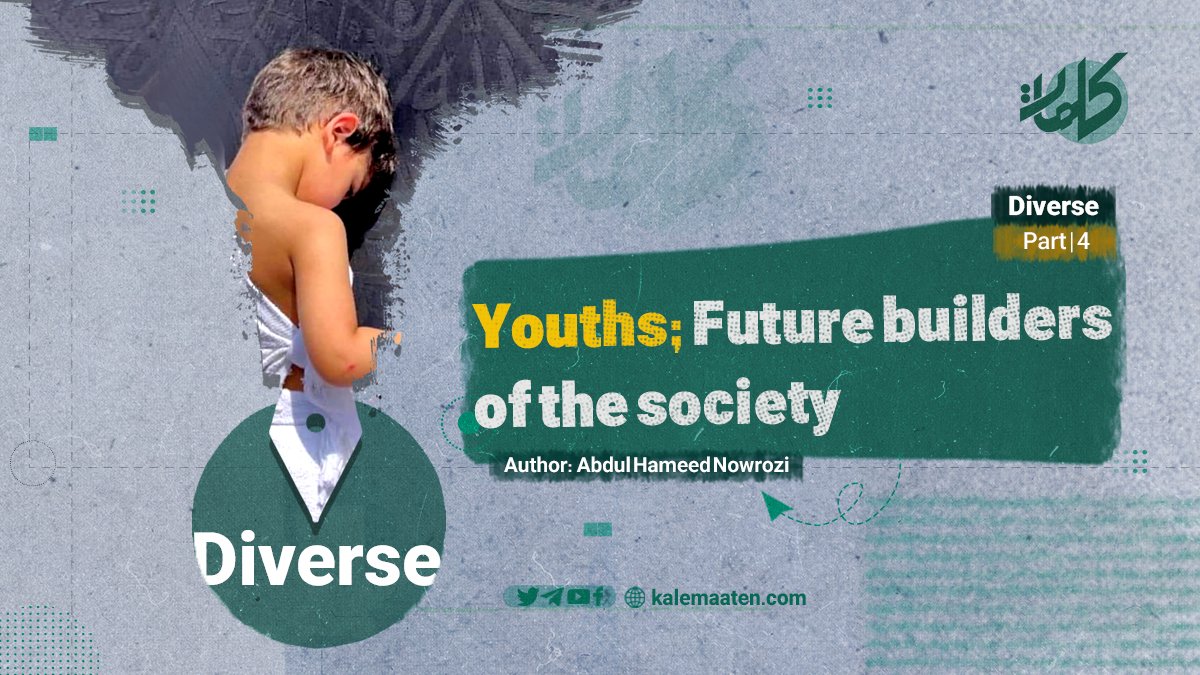
Author: Abdulhameed Nowrozi
Youths; Future Builders of the Society (Part 4)
Comparing the Youth of the Past and Today
The challenges faced by youth in the past were not the same as those encountered by today’s youth, nor were they as severe. The youth of earlier times lived relatively simpler lives and did not experience the complexities that today’s youth are confronting. Therefore, when comparing the youth of the past with the youth of today, we must acknowledge that the former faced fewer difficulties. This claim can be supported by several reasons, including the following:
1. In the past, culture was much simpler and less complex than it is today. The thinking of that time was more straightforward, free from deceit and trickery, and appeared much healthier. Although mixed with certain illusions and superstitions, the culture of that time was more limited and did not mislead students on their path to learning. Additionally, the customs of that era were simpler and less complicated than those of today.
2. In the past, science, industry, and knowledge seemed more limited. The world of work and production at that time was not as complex and diverse as it is today. For this reason, young people did not need to acquire much knowledge or special technical expertise. Things were done simply and easily, and learning was accomplished quickly and effortlessly. Because of this, the thoughts of young people remained calm, and their job assignments were clear. Additionally, their sleep and rest conditions were straightforward, and anxiety and confusion in life were almost negligible.
3. Adherence to religious and moral beliefs was more prevalent in the past. In their beliefs and customs, healthy values and virtues such as honesty and trust, as well as avoidance of trickery and betrayal, seemed comparatively more prominent.
4. The provision of conditions for economic, social, moral, and spiritual membership in the society in which the youth lived was more defined in the past. Today, these characteristics are lacking, leading to some ambiguity and doubt about their place in society, as well as confusion in interpersonal interactions and relationships.
Characteristics of Youth
Youth possess characteristics and features that, if not utilized properly and in the right way, can lead to personal, social, religious, and other harms. Here are some characteristics of youth:
1. Youth is a time of strength and power. The meaning of “strength” in verse 54 of Surah Ar-Rum refers to the vitality of youth: «ثُمَّ جَعَلَ مِنْ بَعْدِ قُوَّةٍ ضَعْفًا وَشَیبَةً». It is during youth that human strength is amplified and the foundation of one’s being is established until it reaches its full growth and potential.
2. Youth is a time of moderation and balance in every aspect. During this period, everything—body, mind, memory, and health—reaches its peak. It is crucial for individuals to capitalize on this moderation; otherwise, future regret may be unavoidable.
3. Youth is a time of excitement and passion. During this time, feelings and emotions surge within individuals, and even the development of personal growth and spirituality intensifies.
4. Practically, young people are brave and strive for independence from their families and parental figures. In this stage of life, they encounter new challenges in terms of identity, behavior, independence, and more. They aspire to be leaders and gain recognition, often going to great lengths to achieve these goals.
Continues…


